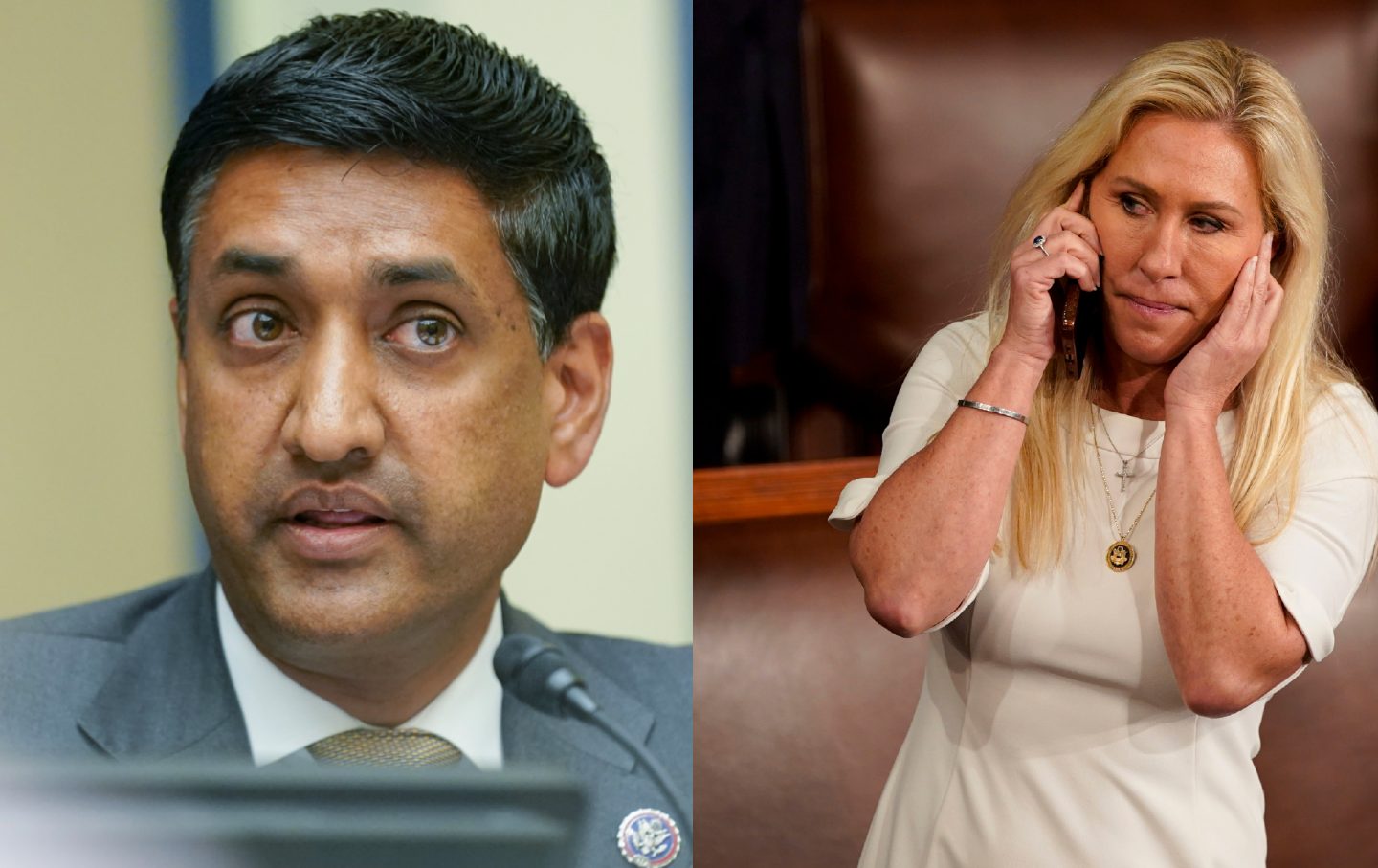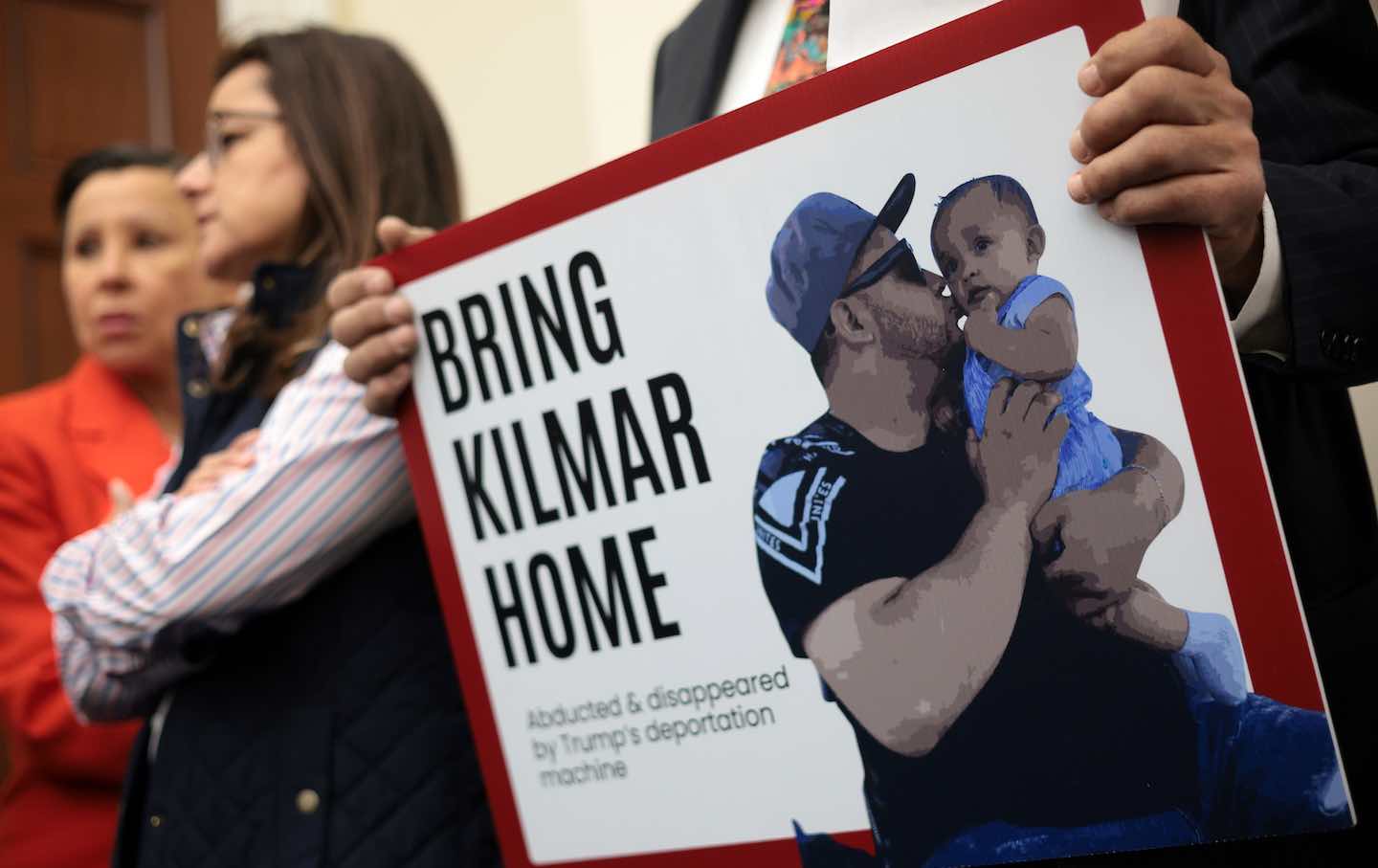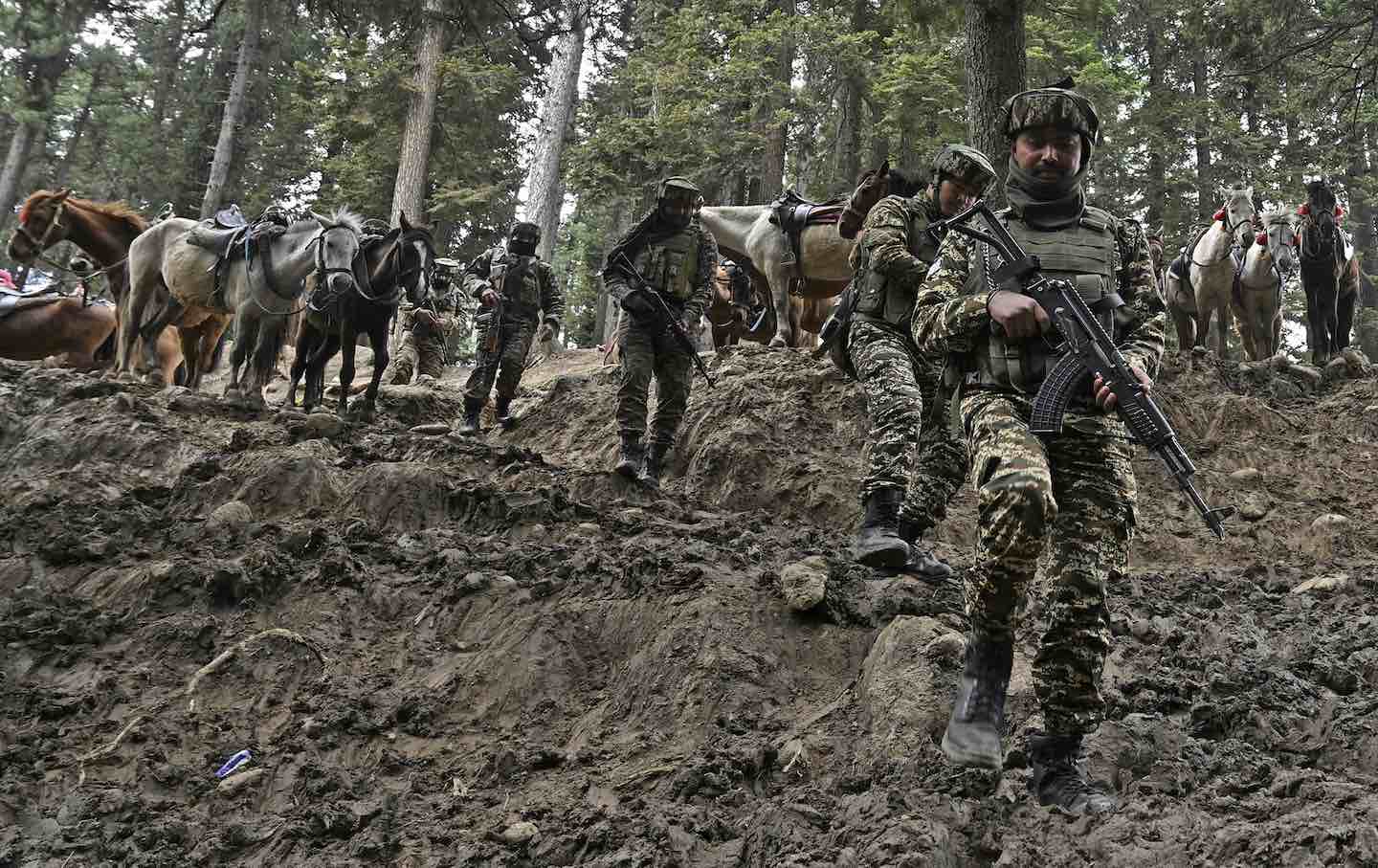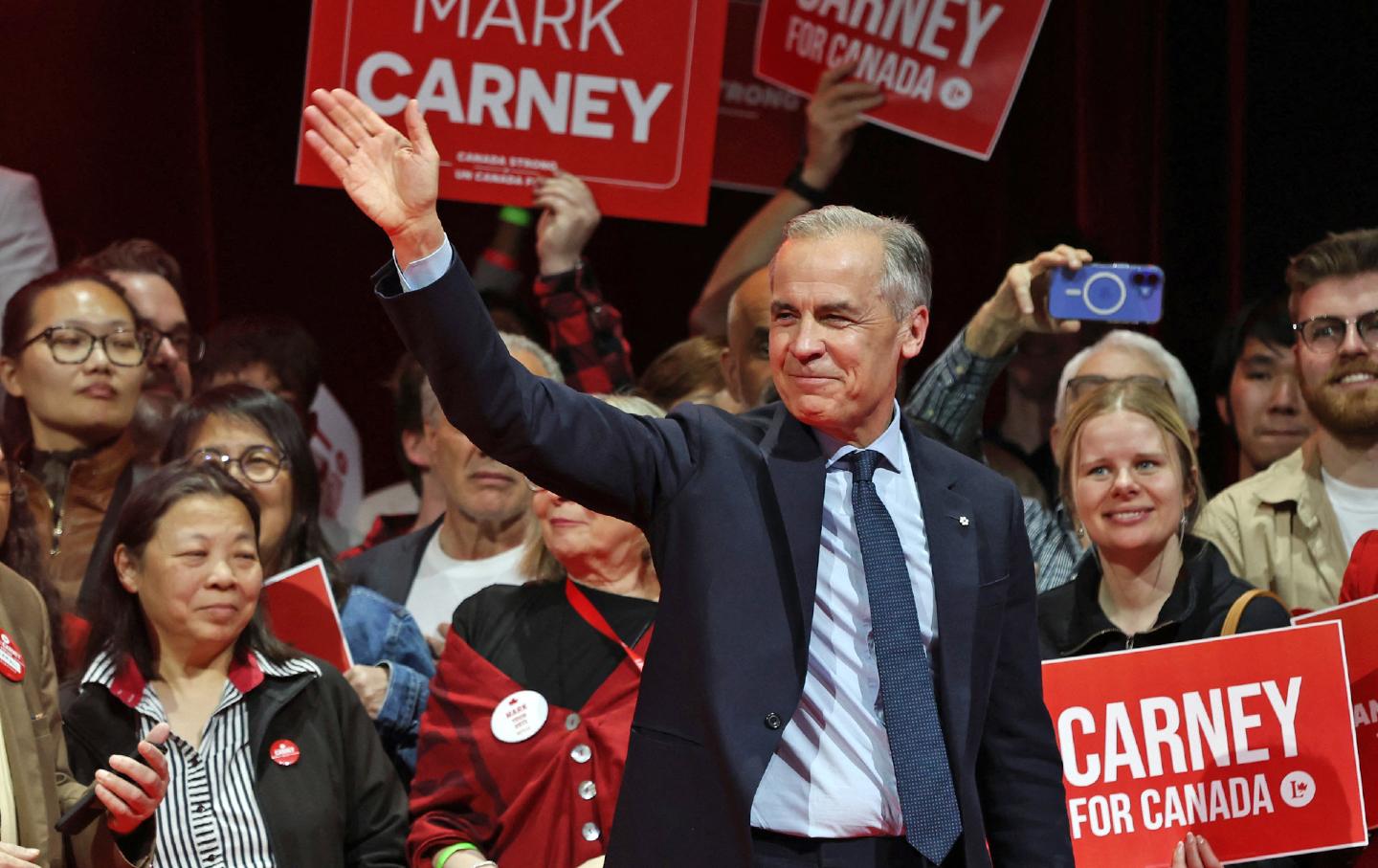To Stop the Slaughter in Gaza, We Need the Broadest Coalition Possible
People with very different visions of what a just peace looks like must work together to stop this war.
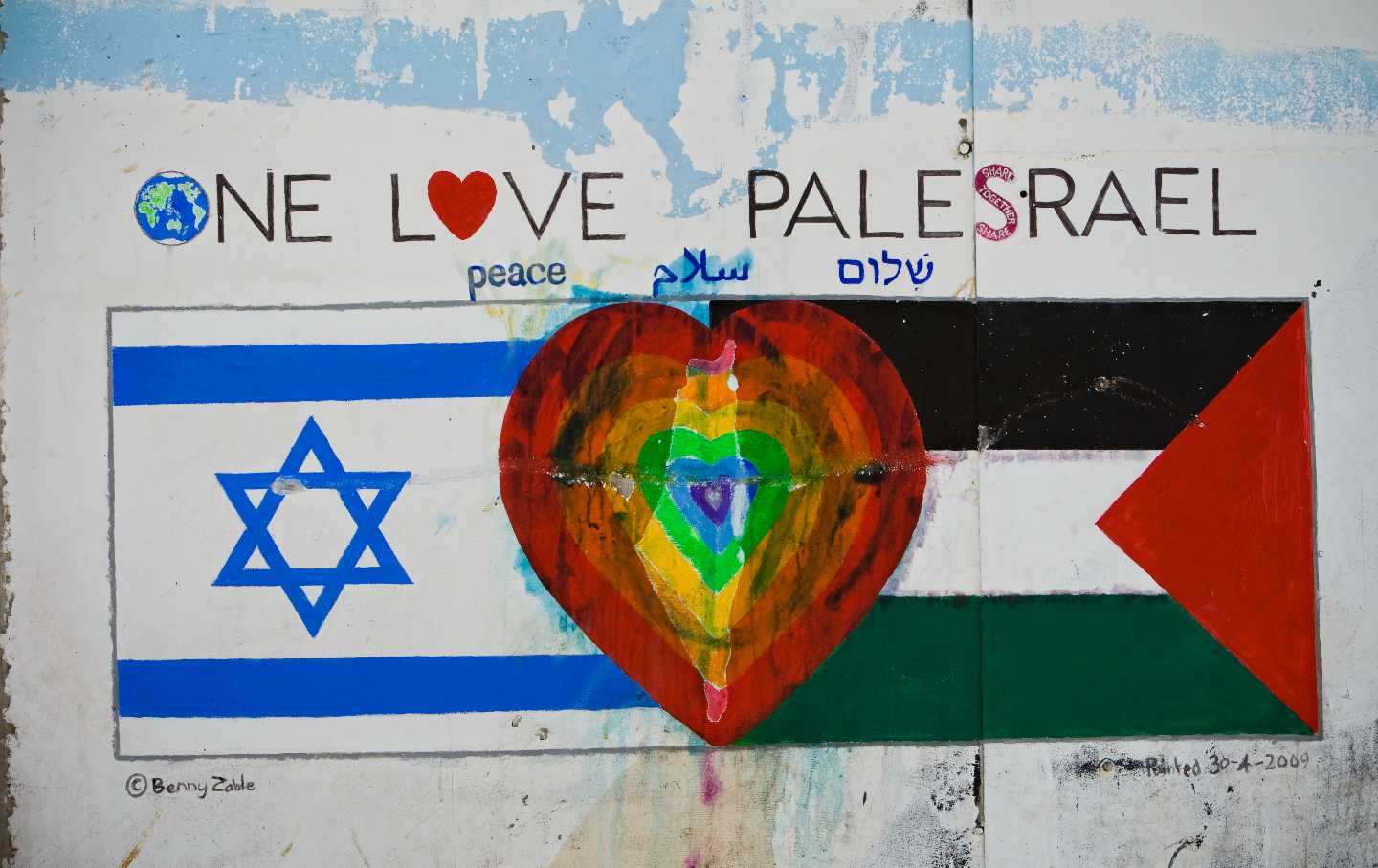
Editor’s note: This text has been updated to reflect the news of the cease-fire announced after we went to press.
All war is hell for the civilians caught up in the fighting. But what makes the decades-long war between Israel and the Palestinians so soul-destroying is that while the only plausible peaceful solution to this bloody conflict has long been obvious, the route to getting there recedes with every new round of killing. (The cease-fire announced just after this issue went to press offers some grounds for hope. Clearly both Israel and Hamas are capable of negotiating with one another—through whatever intermediaries. But the four-day initial “pause” is a long way from a durable cease-fire, let alone genuine peace. The pressure and protests that got us to this point will need to be maintained, and the movement to end this war broadened as far as possible.)
The goal, surely, must be—as I wrote in these pages more than 20 years ago—“a day when the Palestinians themselves can also be heard, and when the lives of Palestinian children count as much as those of Israeli children, or Americans.” Despite the best efforts of AIPAC, the ADL, and the local, state, and national officials who do their bidding, the voices of Palestinians are no longer absent. But progress toward a just peace remains maddeningly remote.
You may well ask: Does a “just peace” mean one secular binational state? Two nation-states living side by side? Or some other vision of shared sovereignty? Those are all excellent questions for the future—and each has its partisans. But first, we need to stop the atrocities—murder on the ground as well as murder from the air—and secure the release of all civilian hostages. To do that, we need to assemble the broadest, most effective coalition possible. Which, for a start, requires us all to engage in the delicate, challenging task of learning to speak a shared language—or, at least, a language as many of us as possible can live with and stand behind.
As the more powerful party, and the occupying power, the greater share of the responsibility rests with Israel. But to label the situation “uncomplicated” is to betray an ignorance of history. Former president Barack Obama’s recent reminder that holding the space to act constructively “require[s] an admission of complexity and maintaining what on the surface may seem contradictory ideas” was a salutary corrective. So let us begin by allowing for that complexity—and the possibility that people with very different visions of what a just peace ultimately looks like can still work together to stop this war.
When Edward Said observed that “the conflict appears intractable because it is a contest over the same land by two peoples who always believed they had valid title to it and who hoped that the other side would in time give up or go away,” he was stating what seemed in 1999 to be an obvious truth. Yet Benjamin Netanyahu—then serving his first term as prime minister—clearly remains as attached as ever to the genocidal fantasy of “a land without people” (i.e., Palestinians) in which Jews exercise sovereignty “between the Sea and the Jordan,” as stated clearly in the 1977 Likud Party platform.
And as we have seen in recent weeks, the leadership of Hamas remains as committed as ever to its genocidal fantasy that the road to a free Palestine must be paved with the bodies of dead Jews. The inability on some parts of the left to utter clear condemnation for the slaughter of civilians on October 7—or even to offer condolences to the survivors without immediate recourse to a sanctimonious clause blaming the victims for their own murder (as if infants and children were legitimate targets)—is a stain on our movement.
Yet it should be equally obvious that adding to the Palestinian body count will not bring safety or security to a single Israeli. An immediate cease-fire remains the essential first step, ideally linked to a release of all of the Israeli civilian hostages—and the more than 1,000 Palestinian “administrative detainees” held without charge or trial, in some cases for years.
Then comes the hard part. Mythology to the contrary, this has always been an asymmetrical conflict—as Israel’s “new historians” began documenting in the 1980s. Fascism, which succeeded in murdering two-thirds of the Jews of Europe, posed an existential threat to the survival of the Jewish people; Palestinian resistance to colonization, occupation, and exile, however violent, is of a different order. But then so, too, is Israeli oppression—however brutal or unbearable for those on the receiving end. Describing the current state of affairs as “genocide” may feel righteous. But when, as the historian Omer Bartov reminds us, the priority is to stop an impending or potential genocide from occurring, why use language that distracts us from the need to act right now—and to act together?
A similar observation could be made about the chant “From the river to the sea”: However venerable as an affirmation of the Palestinian national ideal, it would be wiser, and more comradely, to respect Jewish discomfort than to argue with it. Likewise, affixing the label “settler colonialism” to Israel or analyzing the oppression of the Palestinians in terms of “white privilege” might feel satisfying—but the first negates the yearning to return to Zion that has been part of Jewish identity for millennia, while the second erases the existence of the 35 to 40 percent of Israelis who are Mizrahi (refugees from the Muslim world or their descendants).
To have any hope of being effective politically, we need to ask ourselves whether we are trying to achieve change—or catharsis. Getting a dictator to change course is simple: Only one mind needs to be changed. In a democracy, however, forcing a change requires assembling a coalition powerful enough to make our leaders pay heed.
Arguing over slogans wastes the time we need to spend stopping the slaughter—and working toward a just peace. This is a dispute about land, not language—and ultimately, the land will have to be shared. That may require new leadership in both Israel and Palestine. Certainly, it will require a change in tactics, both by Hamas (who, having demonstrated that the Israeli strategy of “mowing the grass” in Gaza is not sustainable, now have to decide whether they want martyrdom or something more mundane) and Israelis (who must eventually realize that sowing destruction in Gaza merely guarantees a fresh crop of hatred). The governmental structure can be determined later—as can the specific mechanisms for a “right of return” for both peoples. Right now, it would help if the United States stopped issuing blank checks to Netanyahu and pressed Israel to agree to a cease-fire—by whatever name. But if progressives can’t find enough common ground to stop this terrible war, what does that say about our prospects for building a durable peace?

